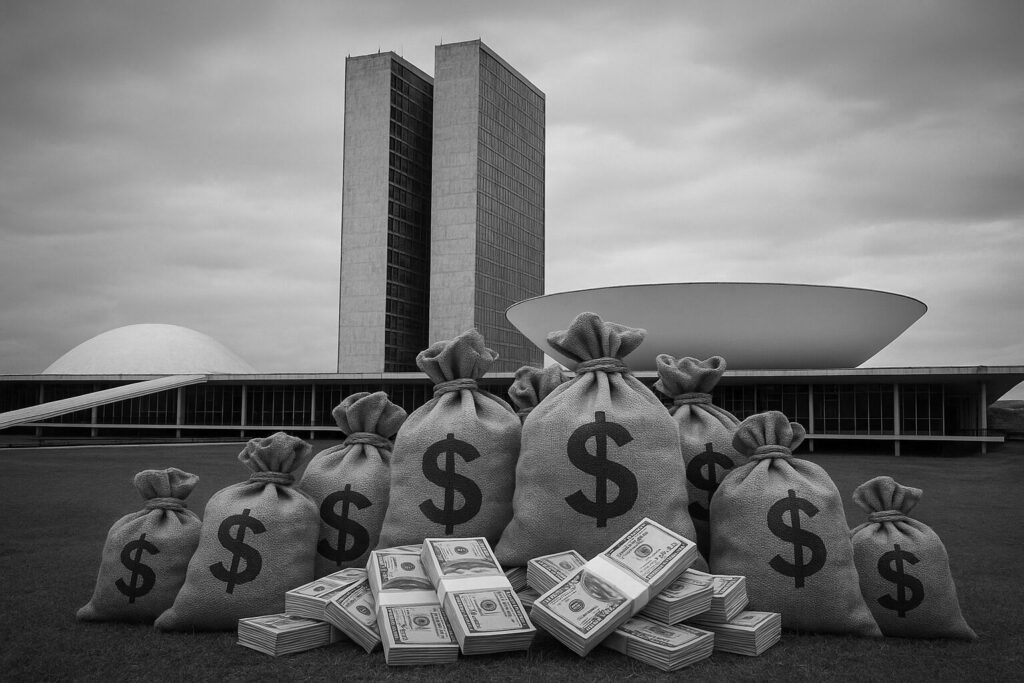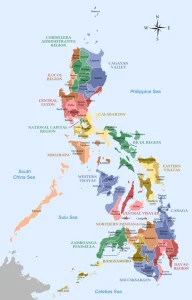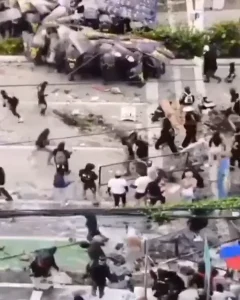
AND Editorial – An Abyss Separates the Old State and the Masses
We hereby share an unofficial translation of the latest editorial from A Nova Democracia (AND).
The approval of the “PEC da Blindagem” (Defence Propose of Constitutional Amendment [PEC]), or rather the “PEC da Bandidagem” (Banditry PEC), in the corrupt Congress, demonstrates to the popular masses the extent of the distance, a veritable abyss, that separates the State apparatus from the popular masses. In its content, the PEC, if approved and sanctioned by the Senate, will guarantee a true safe conduct that senators, deputies, and even party presidents will use to commit all kinds of crimes, given that they could only be investigated and prosecuted by the Supreme Federal Court (STF) with the approval of Congress itself, and, on top of that, in a secret ballot, behind closed doors, in order to also shield the cowardly accomplices and those who cover up for them.
Yesterday, leading moralists, Bolsonaro supporters, and the rest of the far right threw themselves into defending the constitutional amendment, and even had the support of the Workers’ Party (PT) representatives and the “government base,” to the surprise of absolutely no one. “We want to be protected,” said the foolish Nikolas Ferreira, also known by a somewhat suggestive epithet. Bolsonaro supporters want to take advantage of the physiological eagerness of the “center”, in order to steal as much as possible and then some, with maximum impunity, and pit it against the STF, which increasingly seeks to assert itself as the “fair balance” institution in the political crisis, naturally using this to strengthen its power groups. This is an internal struggle among the ruling classes. That is why all of them, from the far right to the false left and including the STF, are the same ones who work for the “tightening of criminal laws,” not for so-called “white-collar crime,” but to punish above all the poor, who are exploited by the extensive criminal networks that often have honorable citizens of high society at the top, coming from established families. And, of course: toughening laws, above all, to combat the struggling working masses, given the articulation to frame the struggle for land as “terrorism.”
***
Speaking of the accusation of “terrorism,” this continues to be the maxim of the Military Police of Rondônia (PM-RO) and its supporters in the so-called “press” of Rondônia, as unethical and unprofessional as it is subservient to the police from a political point of view, accusations leveled against the peasant movement, particularly the League of Poor Peasants (LCP). The destruction of facilities at the headquarters of the Norbrasil farm, a latifundium covering tens of thousands of hectares, was the cue to accuse the LCP of assaulting the farm “with assault rifles” and, once again, of practicing “terrorism.” Similarly, in 2021, the occupation of most of the land belonging to the same farm and the death of two military police officers on duty were also used by the PM-RO to spread the word about the existence of a “subversive guerrilla group.”
Terrorism has certainly been present in Rondônia and the Amazonia in general, but not on the part of poor peasants, but rather on the part of repression, whether State-sponsored or not, against the struggle for land. According to the Pastoral Comission of the Land (CPT), between 2021 and 2023 alone, there were 11 murders of poor peasants in the Tiago Campin dos Santos area, which occupies part of the large estate; among them, peasant leader Gedeon José Duque, and peasant activist Rafael Gasparini Tedesco, tortured and executed at point-blank range by Battalion of Special Police Operations (BOPE) troops—the same troops that, in Machadinho D’Oeste, and in the same way, executed on August 8 the peasant and newly initiated LCP activist, Raimundo Nonato.
The commander-general of the PM-RO, Colonel Braguin, has no qualms about explicitly positioning himself as a bodyguard, a real henchman, for the latifundium, demonstrating in practice how false the constitution of this old democracy is, which claims that the PM, like the other institutions, is above the classes. “The law does not classify the LCP as terrorism,” says Braguin, but “in our approach, we already go with that interpretation,” he admitted in a video recording part of one of his lectures. The right of land for the rural poor, supposedly enshrined in the 1988 Constitution as “Agrarian Reform,” is in fact illegal, insofar as practicing it results in repression and executions by State or paramilitary forces, but in any case, sanctioned by successive governments, including the false left.
The brutal concentration of land ownership is historically, directly and indirectly, at the root of the endemic poverty and misery of the vast majority of the country’s working masses, of its centuries-old backwardness, of which the much-vaunted “agribusiness” is only a sophisticated and high-tech way of preserving the nation’s semi-colonial status as a mere source of raw materials, primary production for export, and an economy serving the imperialist system. The end of this land tenure system is a pending issue that has never been resolved; it is the bourgeois democratic issue without which the Brazilian republic has been nothing more than a sham. Therefore, one cannot condemn the peasants’ decision to resort to self-defense in order to avoid being further massacred by the goons and paramilitaries of the latifundium and by the troops of the PM-RO and BOPE at their service, as the only means for poor peasants to secure their right to land to live and work. But first, it is indeed necessary to enthusiastically and fully support the poor peasants.
***
When the State apparatus acts openly in its own interests and those of the ruling classes, whether in parliamentary decisions or in explicit political repression of the struggling masses, the only consequence is disillusionment with the old democracy. In fact, the Brazilian people’s distrust of Congress and other institutions is growing: 52% do not trust the legislature, 47% do not trust the judiciary, and 44% do not trust the executive branch, according to a recently published Genial/Quaest survey. And, according to an August Datafolha survey, 78% of Brazilians believe that Congress acts in its own interests, and 68% and 59% think the same about the judiciary and the Presidency of the Republic, respectively. Disapproval of Luiz Inácio’s opportunistic government has also stagnated at 51%, and 45% of the population is pessimistic about the future of the country’s economy (Datafolha), despite the celebrations of the Pyrrhic victory “over the coup” with the conviction of Bolsonaro and other “cannon fodder” from the high command, despite the new cosmetic welfare programs and artificial data on the country’s economy (such as the supposedly “record low unemployment” rate magically calculated by the IBGE, which we have already refuted in this newspaper). Official political parties, which differ only in their acronyms, are discredited by 63% of the population, equivalent to around 135 million Brazilians. The figures converge with the growing electoral boycott, which reflects popular dissatisfaction with the current state of affairs and is likely to increase in the electoral farce of 2026, even with the false polarization staged by the old order and propagated by the media monopolies (which are distrusted by half the population).
In short, all the rotten political, legal, and repressive institutions of the old Brazilian State are completely discredited in the eyes of the population as a result of the crisis of decomposition of bureaucratic capitalism, to which no fraction of the ruling classes seems capable of imposing a solution. Furthermore, today, the vast majority of the Brazilian people are unaware of any alternative to the old bourgeois democracy with its electoral farce other than the military regime, whose reactionary exit is also met with a certain degree of rejection. As for the real solution, the revolutionary struggle, still isolated from the demobilized masses and under the “cordon sanitaire” of the press monopoly and opportunism, although it is the only political perspective, can only assert itself as an immediate solution to the extent that it develops to higher levels.
Revolutionaries and democrats must take advantage of this formidable situation and fertile ground for the broad development of the democratic-revolutionary struggle, particularly the revolutionary struggle for land, which points to the need for a democratic popular government arising from the Democratic Revolution. It is undeniable that a qualitative leap in the class struggle in the country is taking place, especially in the countryside, with the advance of the struggle for land, increasingly a revolutionary peasant war against the forces of the extreme right-wing landlords and their hired thugs and police forces. This must be recognized, and in recognizing it, there is no option but to propagate it, support it, and take part in the struggle for the liberation of the Brazilian people. This is no longer a historical perspective, but a political struggle for the present.

